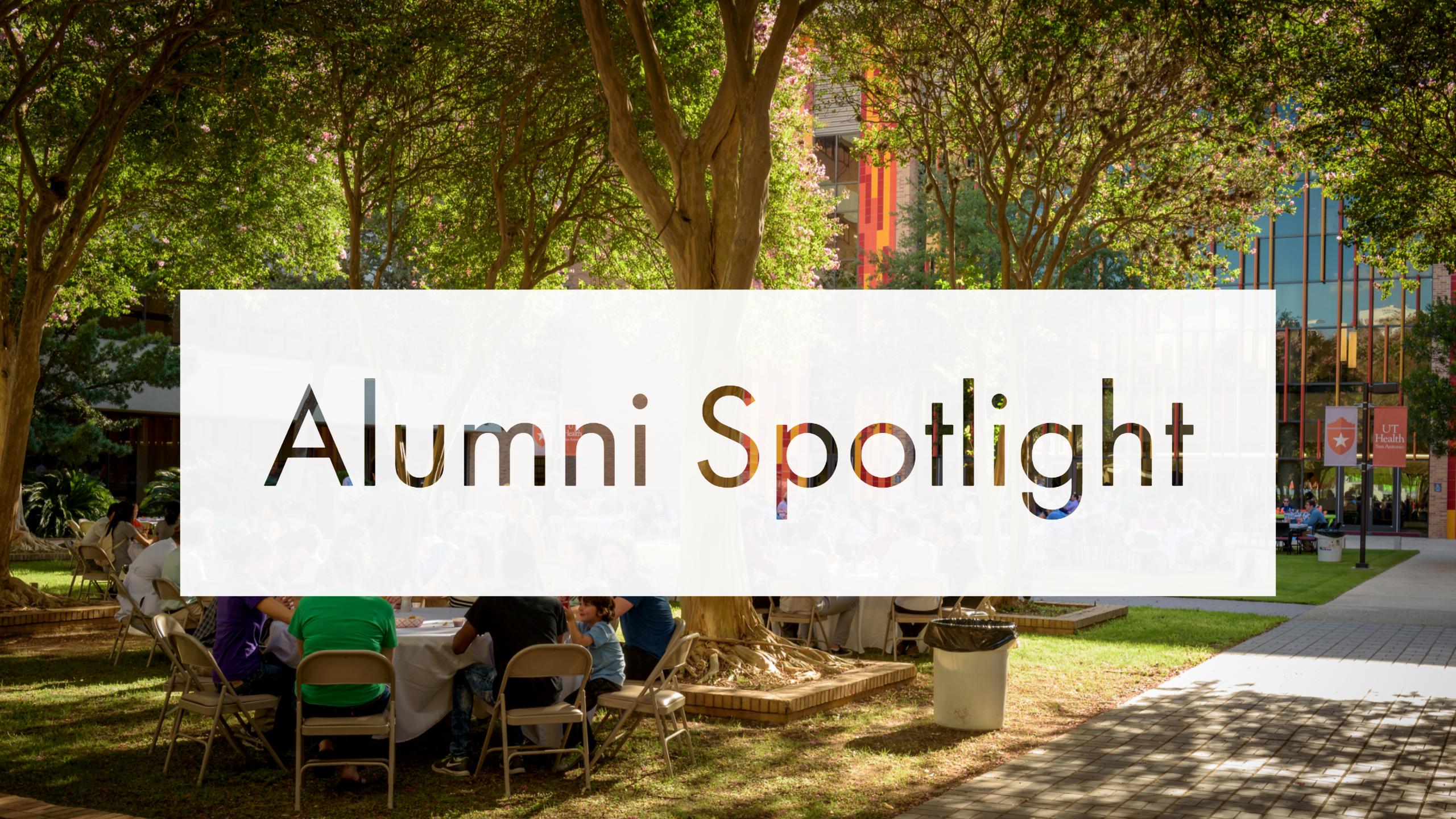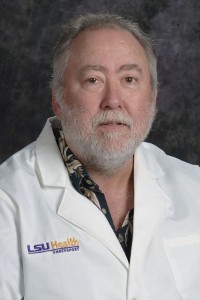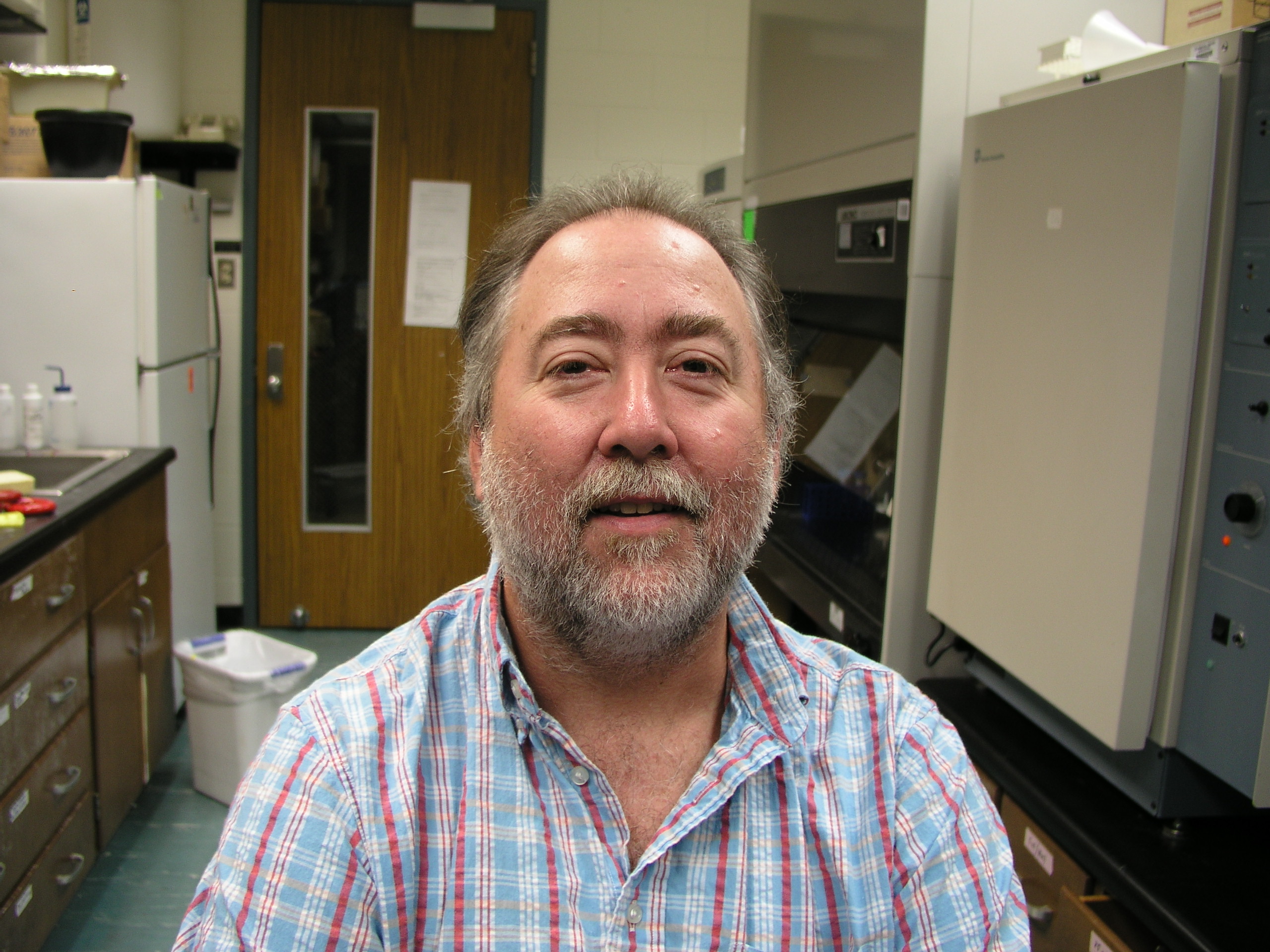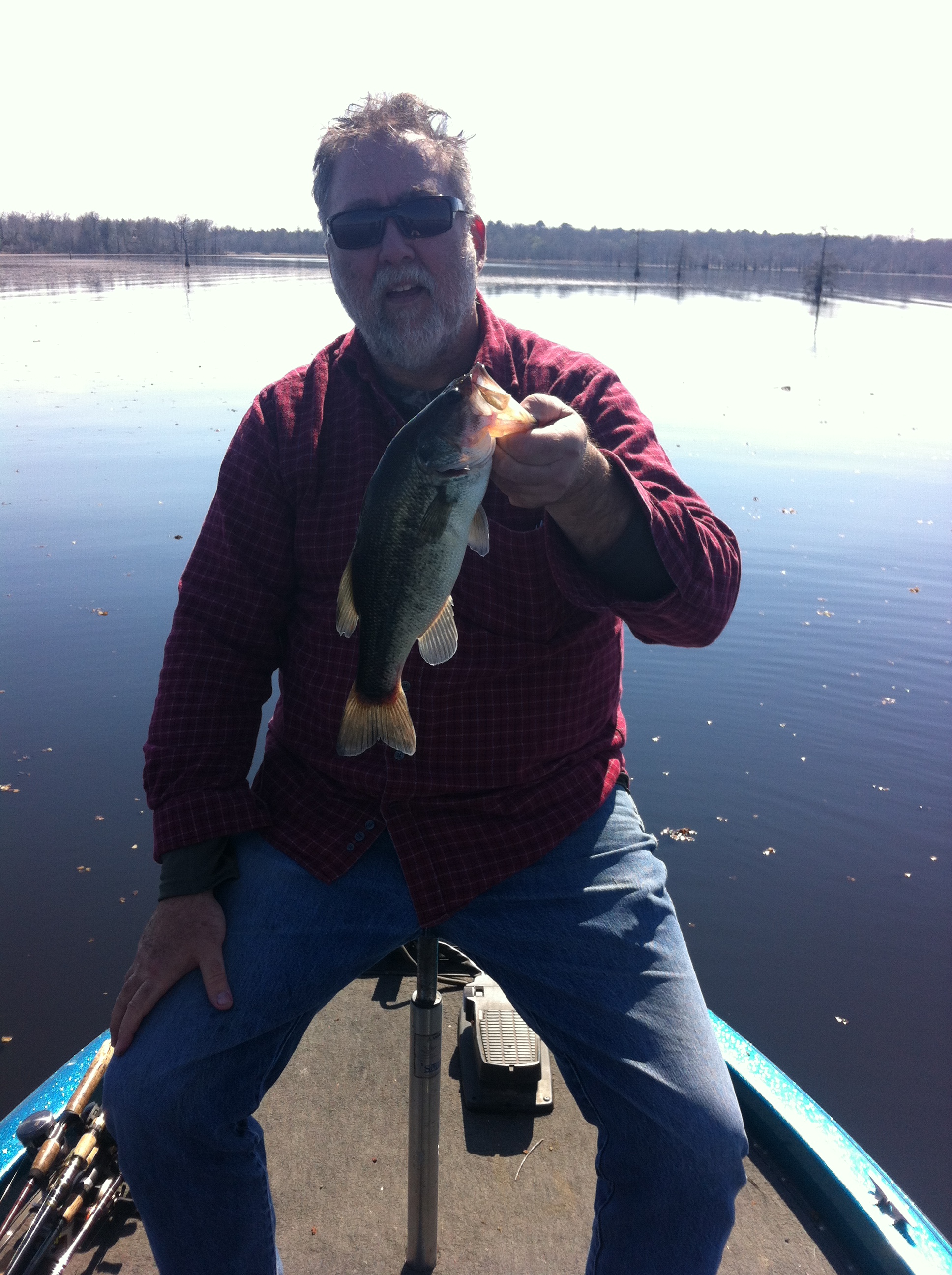Alumni Spotlight: Dr. Ken Peterson, a reflection back

 Kenneth M. Peterson, graduated with a Ph.D. in Microbiology in 1988 (now the Integrated Biomedical Sciences Ph.D. program—Molecular Immunology & Microbiology discipline). His mentor was Dr. John Alderete and his dissertation was on “Studies on the Biology of a Major Human Pathogen: Trichomonas vaginalis Acquisition of Host Macromolecules and the Host-Parasite Interface.”
Kenneth M. Peterson, graduated with a Ph.D. in Microbiology in 1988 (now the Integrated Biomedical Sciences Ph.D. program—Molecular Immunology & Microbiology discipline). His mentor was Dr. John Alderete and his dissertation was on “Studies on the Biology of a Major Human Pathogen: Trichomonas vaginalis Acquisition of Host Macromolecules and the Host-Parasite Interface.”
As a young boy, I was very interested in how devices found around the house/garage worked. I took apart bicycles, lawn mower motors, motor cycles and put them back together sometimes with not such great results. I think my curiosity regarding how mechanical devices work is what initially drew me to study biology and chemistry in college.
When I enrolled as a biology major a Texas Lutheran College (TLC), I did not have a long-range plan as to what kind of career I wanted to pursue. My initial biology/chemistry course classes were very appealing and led me to begin thinking about how my undergraduate degree would allow me to make a living. My junior year I enrolled in a microbiology class and I became fascinated by all the biological/biochemical processes that involve bacteria. I was able to participate in some small independent research projects while at TLC that really piqued my interest and fascination regarding the scientific method. During my junior and senior years, I landed a job in the microbiology laboratory of the Guadalupe-Blanco River Authority. This experience gave me a greater appreciation for microbiology and made me think about pursuing a career in environmental microbiology.

During my senior year at TLC, I decided that I would pursue a graduate degree in Microbiology. Being at a small liberal arts college, I was very naïve with respect to what to look for in a quality graduate school program. I had just started investigating various graduate programs in microbiology when one of my TLC professors referred me to the Microbiology program at the The University of Texas Health Science Center at San Antonio (now called UT Health San Antonio).
During my interview, the Department of Microbiology was having a party for Don Woods, a newly graduated Ph.D student. I was able to visit with him and he convinced me that the program would be an ideal place to pursue my studies. This was a great time to join the department because Dr. Joel Baseman the newly hired Microbiology Chair, was determined to make the department a first class research enterprise. It was not until I started my thesis project, that I realized that I had a passion for science.
My thesis mentor Dr. John Alderete’s enthusiasm for science and the art of being an experimental scientist was infectious and quickly rubbed off on me. I cannot thank John enough for his guidance and for showing me how to carry out state-of-the-art science. I look back on my path as a research scientist and realize that my days as a graduate student were some of the most exciting times I have experienced as a scientist. John was a brand new assistant professor and I was his first graduated student. We started out together with very little and were able to grow the lab into a special place for scientific research at UT Health San Antonio. My thesis project employed a biochemical approach towards characterizing the interaction of host serum proteins with the surface of Trichomonas vaginalis. This thesis project took three years to complete and led to the publication of seven first author papers.
Upon completion of my degree at UT Health San Antonio, I obtained a postdoctoral fellow position in the laboratory of Dr. John Mekalanos. In his lab, I learned how to utilize genetics to understand the contribution of V. cholerae virulence determinants to intestinal colonization. The scientific environment in the Department of Microbiology and Molecular Genetics at Harvard University Medical School was outstanding and further kindled my passion for science. It was there, that I realized how important it is to interact with other scientists in order to learn from them so that I could expand my experimental and philosophical approaches to conducting science.
Although my experience at UT Health San Antonio was great, my development as an experimental scientist at Harvard was elevated to an even higher level. The personal and scientific interactions in the Mekalanos lab were outstanding and really cemented my passion for science. As a postdoc, I used a genetic approach to identify a set of linked genes (acf; accessory colonization factor) involved in intestinal colonization that were under the control of a transcriptional regulator that managed the expression of cholera toxin genes and a set of pilus genes involved in intestinal colonization. Together the toxin, pilus and acf genes are referred to as the ToxR regulon. As the name implies, a protein called ToxR controls them all and promotes their expression in response to intraintestinal signals.
I was fortunate in that, John allowed me to take my postdoctoral research project with me when I joined the faculty in the Department of Microbiology and Immunology at the Louisiana State University Health Sciences Center. Upon joining the faculty at LSU, my major research focus was to determine how the acf genes contributed to V. cholerae intestinal colonization.
Over the years, my research team has elucidated the role of the Acf proteins in intestinal colonization. These Acf proteins are involved in chemotaxis towards intestinal mucus such that, the vibrios can efficiently move toward the mucus lining the small intestine. These chemotaxis proteins also contribute to the expression of the pilus genes further promoting intestinal colonization. Finally, Acf chemotaxis proteins are also involved in production of cholera toxin at the surface of the small intestinal microvilli. Utilizing the awesome power of bacterial genetics to discover and tease out the mechanisms this devastating human pathogen utilizes to colonize the small intestine during the course of infection has been a fascinating and very exciting area of scientific exploration.
Over the course of my career, I have come to appreciate the ability of this bacterial pathogen to interact with the host in so many unexpected ways in order to colonize specific niches, evade host immune/nonimmune defense mechanisms and cause disease. I feel blessed to have been able to interact with so many outstanding scientists in the field of cholera pathogenesis and proud of my laboratories contributions to this fascinating field!
One of the most rewarding aspects of being an experimental scientist are the interactions that I have with the public. It is exciting to be able to explain in lay terms the research that goes on in my laboratory and how it may contribute to the development of cholera vaccines. The public enjoy learning about cholera’s rich history and how, despite years of intense research, Asiatic cholera remains a serious global public health concern. In addition to the human suffering and death caused by cholera, cholera outbreaks cause panic, disrupt social and economic structures and can impede development in the affected communities. A successful cholera vaccine would have a major impact on the quality of life in third world countries. Most people quickly grasp the need for basic research on V. cholerae in order to be able to generate much needed vaccines.
As a postdoctoral fellow, I received a National Institutes of Health (NIH) sponsored fellowship that allowed me to pursue in molecular detail the mechanisms by which V. cholerae efficiently colonizes the human small intestine leading to the explosive watery diarrhea associated with Asiatic cholera. During my tenure as an LSU faculty member, I directed numerous NIH sponsored research grants aimed at understanding the role of the Acf proteins in V. cholerae intestinal colonization. I have served on NIH study section panels evaluating research proposals in the area of bacterial pathogenesis.
I have reviewed manuscripts for the editorial boards of several scientific journals in the area of bacterial pathogenesis and molecular biology. I have been a member of the American Society of Microbiology, the largest single life science membership organization in the world. For that past 24 years, I have participated in the Louisiana Regional Science Fair for Northwest Louisiana. This exceptionally rewarding endeavor lets me interact with some of the best and brightest aspiring young scientists. Every time I judge the Science Fair, I come away impressed by the genius and ingenuity of many of these participants!
I enjoy the environment at the LSU Health Sciences Center. LSU is small medical center blessed with a very interactive faculty that are supportive of one another. LSU’s small size promotes faculty interactions with the medical and graduate students. I have found that teaching medical students and supervising the research of graduate students is extremely rewarding. It is very satisfying to follow their development here at LSU and more so, as they leave and pursue their careers elsewhere.
Both of my sons are Eagle Scouts, and as a scout leader, I was able to follow them on some awesome outdoor adventures.
Even though my sons have finished scouting, I continue to be involved in the BSA and still enjoy all the outdoor activities associated with scouting. I also like being a mentor to these youngsters and take great satisfaction in watching them learn leadership skills and develop into outstanding young men. Louisiana’s nickname is “Sportsman’s Paradise”. I am an avid angler, which allows me to spend quality time on the beautiful rivers and lakes of North Louisiana. I am able to enjoy some of the finest sports fishing in the country. I also enjoy playing competitive billiards in a weekly eight ball-nine ball pool league.

My scientific career will be ending in the next several years and I am not sure what I will do when I retire. I have thought about spending a few years doing community work with disadvantaged youth here in Shreveport. I enjoy working with young people and there is a real need for this kind of work in our community. Following that, I plan to travel around the country and spend a lot of time fishing.
